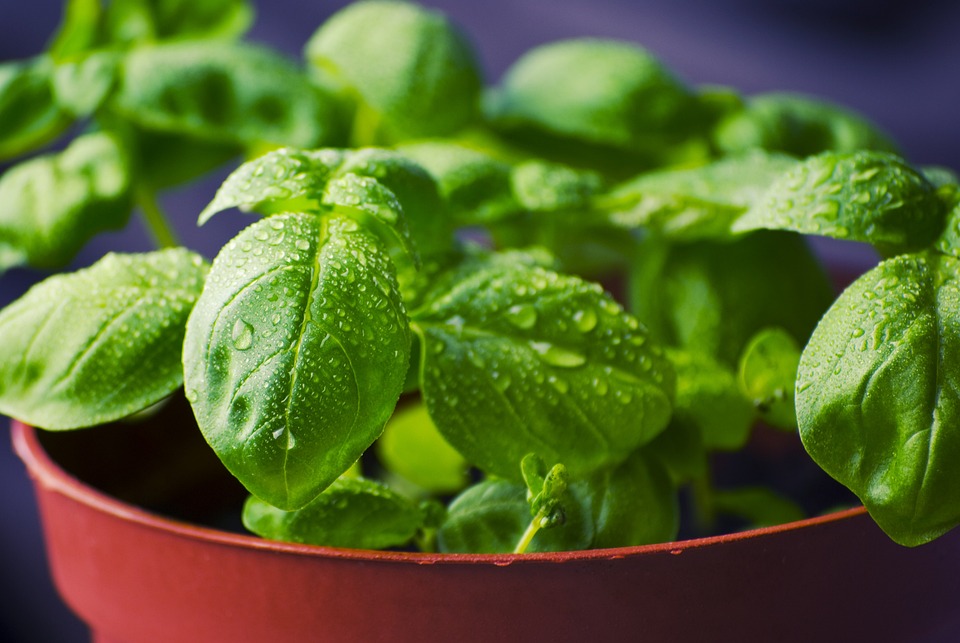Understanding gastric sleeve Surgery
Gastric sleeve surgery, also known as sleeve gastrectomy, is a Bariatric procedure that involves the removal of a large portion of the stomach to create a smaller, sleeve-shaped stomach. This surgical intervention reduces the stomach’s capacity, leading to reduced food intake and, consequently, weight loss. It is an effective method for individuals struggling with severe obesity and experiencing weight-related health problems. After undergoing this life-changing surgery, it is crucial to adopt a healthy and balanced diet to ensure long-term success and well-being.
The Importance of a Balanced Diet
Following gastric sleeve surgery, adopting a balanced diet is essential for several reasons. Firstly, it helps to maintain a healthy weight and prevent weight regain. Secondly, it ensures that the body receives all the necessary nutrients for optimal health. Lastly, a well-balanced diet helps to minimize the risk of complications and promotes a faster recovery process.
The Role of Macronutrients
Macronutrients, including carbohydrates, proteins, and fats, play a vital role in post-gastric sleeve surgery diet. Carbohydrates are the body’s primary source of energy and should be consumed in the form of whole grains, fruits, and vegetables. Proteins are essential for tissue repair and maintenance, and they can be obtained from lean meats, fish, eggs, and plant-based sources like legumes and tofu. Healthy fats, such as those found in avocados, nuts, and olive oil, are crucial for nutrient absorption and hormone production.
Focus on Micronutrients
Micronutrients, including vitamins and minerals, are equally important in a post-gastric sleeve surgery diet. Due to the reduced stomach size, it may be challenging to obtain all the necessary nutrients solely from food sources. Therefore, it is often recommended to take daily multivitamin and mineral supplements to ensure adequate intake.
Hydration and Fluid Intake
Proper hydration is crucial after gastric sleeve surgery. It is recommended to drink at least 64 ounces (1.9 liters) of fluids per day. However, it is essential to avoid drinking with meals, as it may lead to discomfort or stretching of the stomach. Instead, fluids should be consumed at least 30 minutes before or after meals to ensure adequate hydration without compromising the surgical outcome.
Meal Planning and Portion Control
Meal planning and portion control are essential aspects of maintaining a healthy diet after gastric sleeve surgery. It is crucial to eat small, frequent meals throughout the day rather than consuming large meals. This approach helps to prevent overeating and promotes better digestion. Additionally, it is recommended to prioritize protein-rich foods and include a variety of fruits and vegetables in each meal.
In conclusion, adopting a healthy and balanced diet is crucial for long-term success after gastric sleeve surgery. It is essential to focus on macronutrients, micronutrients, hydration, and portion control to ensure optimal health and weight management. By following these guidelines and working closely with healthcare professionals, individuals can achieve their weight loss goals and improve their overall well-being.
Frequently Raised Concerns About Best Diet After Gastric Sleeve
1. What is the best diet to follow after gastric sleeve surgery?
After gastric sleeve surgery, it is crucial to follow a specific diet to promote healing and ensure long-term success. The best diet to follow typically consists of several stages, gradually progressing from liquids to solid foods. Here are the three most important things to keep in mind while following the post-gastric sleeve surgery diet:
1. Start with a clear liquid diet: In the initial days after surgery, your diet will mainly consist of clear liquids such as water, broth, sugar-free gelatin, and herbal tea. These help keep you hydrated and provide essential nutrients while allowing your stomach to heal.
2. Transition to a full liquid diet: Once you tolerate clear liquids well, you can progress to a full liquid diet. This includes low-fat milk, yogurt, protein shakes, and strained soups. These foods provide more nutrients and help you meet your protein requirements.
3. Gradually introduce solid foods: As your body adjusts to the new stomach size, you can start incorporating soft, pureed, and then solid foods into your diet. Focus on consuming lean proteins, such as poultry, fish, and tofu, along with fruits, vegetables, and whole grains. Chew your food thoroughly and eat slowly to prevent discomfort and ensure proper digestion.
2. How much protein should I consume after gastric sleeve surgery?
Protein plays a vital role in the healing process and helps preserve muscle mass after gastric sleeve surgery. It is essential to consume enough protein to support your body’s needs. Here are the three most important aspects regarding protein consumption after gastric sleeve surgery:
1. Aim for 60-80 grams of protein daily: Your daily protein intake should range between 60 and 80 grams after gastric sleeve surgery. This amount can vary depending on your individual needs and the advice of your healthcare provider. Protein-rich foods like lean meats, eggs, dairy products, legumes, and protein supplements can help you meet this requirement.
2. Prioritize lean protein sources: Opt for lean protein sources that are low in fat and easily digestible. These include skinless poultry, fish, low-fat dairy products, tofu, and legumes. These foods provide essential amino acids and help promote healing and muscle repair.
3. Spread out protein intake throughout the day: Instead of consuming all your protein in one meal, distribute it evenly throughout the day. This approach ensures a steady supply of amino acids for your body’s needs, promotes satiety, and helps prevent muscle breakdown.
3. What foods should I avoid after gastric sleeve surgery?
After gastric sleeve surgery, some foods can cause discomfort, hinder weight loss, or lead to complications. It is important to avoid these foods to ensure a successful recovery and long-term weight management. Here are the three most important types of foods to avoid:
1. High-calorie and sugary foods: Avoid foods high in calories and added sugars, such as sodas, candies, pastries, and sugary beverages. These foods provide little nutritional value and can hinder weight loss efforts.
2. Foods high in fat and fried foods: Limit your intake of high-fat foods, including fried foods, greasy snacks, fatty meats, and full-fat dairy products. These foods can be difficult to digest and may cause discomfort or gastrointestinal issues.
3. Carbonated and caffeinated beverages: Carbonated and caffeinated beverages, such as soda, energy drinks, and coffee, can irritate the stomach lining and potentially cause discomfort or reflux. It is best to opt for non-carbonated and non-caffeinated alternatives like water, herbal tea, or decaffeinated beverages.
4. How should I manage portion sizes after gastric sleeve surgery?
Managing portion sizes is crucial for successful weight loss and maintenance after gastric sleeve surgery. Since the surgery reduces the stomach size, you will need to adjust your portion sizes accordingly. Here are the three most important tips for managing portion sizes:
1. Use smaller plates and utensils: Using smaller plates and utensils can create an illusion of larger portions, helping you feel satisfied with less food. This visual trick can aid in portion control and prevent overeating.
2. Listen to your body’s hunger and fullness cues: Pay attention to your body’s signals of hunger and fullness. Eat slowly and mindfully, stopping when you feel comfortably satisfied rather than overeating. It takes time for your brain to register that your stomach is full, so eating slowly can prevent overconsumption.
3. Measure and track your food intake: Initially, it can be helpful to measure and track your food intake using measuring cups, spoons, or a food scale. This practice allows you to become more aware of appropriate portion sizes and helps you develop a better understanding of your nutritional needs.
5. How can I maintain long-term weight loss after gastric sleeve surgery?
Gastric sleeve surgery is a tool to aid weight loss, but long-term success requires making sustainable lifestyle changes. Here are the three most important strategies for maintaining weight loss after gastric sleeve surgery:
1. Follow a balanced and nutritious diet: Focus on consuming a balanced diet that includes lean proteins, whole grains, fruits, vegetables, and healthy fats. Avoid highly processed foods, added sugars, and excessive snacking. Prioritize nutrient-dense foods to support your overall health and maintain weight loss.
2. Stay physically active: Regular physical activity is essential for maintaining weight loss and overall well-being. Engage in a combination of aerobic exercises, strength training, and flexibility exercises. Aim for at least 150 minutes of moderate-intensity exercise or 75 minutes of vigorous-intensity exercise per week, as recommended by the American Heart Association.
3. Attend follow-up appointments and support groups: Regularly attending follow-up appointments with your healthcare provider is important for monitoring your progress, addressing any concerns, and receiving ongoing guidance. Additionally, participating in support groups or seeking counseling can provide emotional support, helpful tips, and a sense of community with others who have undergone similar surgeries.
Remember, each individual’s journey after gastric sleeve surgery is unique, so it is crucial to consult with your healthcare provider or a registered dietitian for personalized guidance and recommendations.
Popular Myths Regarding Best Diet After Gastric Sleeve
1. Best Diet After Gastric Sleeve: Misconception about Limited Food Choices
One common misconception about the best diet after gastric sleeve surgery is that individuals have limited food choices. While it is true that certain foods may need to be avoided or consumed in moderation, patients are not restricted to a small selection of foods. After surgery, it is important to focus on consuming nutrient-dense foods that provide the necessary vitamins and minerals for optimal health. A variety of fruits, vegetables, lean proteins, and whole grains can be included in the diet to ensure a well-balanced and satisfying meal plan.
2. Best Diet After Gastric Sleeve: Misconception about Constant Hunger
Another misconception is that individuals who undergo gastric sleeve surgery will constantly feel hungry. While it is normal to experience some hunger initially as the body adjusts to the changes, the surgery itself reduces the size of the stomach, leading to a decreased appetite and a feeling of fullness with smaller meals. Following a healthy eating plan that includes regular meals and snacks can help manage hunger and prevent overeating.
3. Best Diet After Gastric Sleeve: Misconception about Strict Calorie Counting
Many people believe that strict calorie counting is necessary for weight loss after gastric sleeve surgery. While it is important to be mindful of calorie intake, focusing solely on counting calories can be misleading. Instead, it is more beneficial to focus on consuming nutrient-rich foods and listening to your body’s hunger and fullness cues. By choosing whole, unprocessed foods and practicing portion control, individuals can achieve weight loss and maintain a healthy lifestyle without the need for constant calorie counting.
4. Best Diet After Gastric Sleeve: Misconception about Avoiding Fat Completely
A common misconception is that individuals should avoid all fats after gastric sleeve surgery. While it is true that certain types of fats, such as saturated and trans fats, should be limited for overall health, healthy fats are an essential part of a balanced diet. Foods like avocados, nuts, seeds, and olive oil provide important nutrients and can help promote satiety. Including small amounts of healthy fats in the diet can also enhance the absorption of fat-soluble vitamins.
5. Best Diet After Gastric Sleeve: Misconception about No Need for Physical Activity
Another misconception is that weight loss after gastric sleeve surgery can be achieved solely through dietary changes, without the need for physical activity. While changes in diet are crucial for weight loss, incorporating regular exercise into one’s routine offers numerous benefits. Physical activity helps increase metabolism, build lean muscle mass, improve cardiovascular health, and enhance overall well-being. It also aids in weight maintenance and can assist in preventing weight regain in the long term. Engaging in activities such as walking, swimming, cycling, or strength training can complement a healthy diet and lead to better overall outcomes after gastric sleeve surgery.
Best Diet After Gastric Sleeve
#diet #gastric #sleeve #surgery #focuses #providing #adequate #nutrition #promoting #weight #loss #maintaining #longterm #success #general #guideline #postgastric #sleeve #diet

